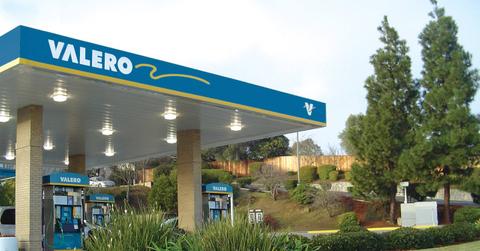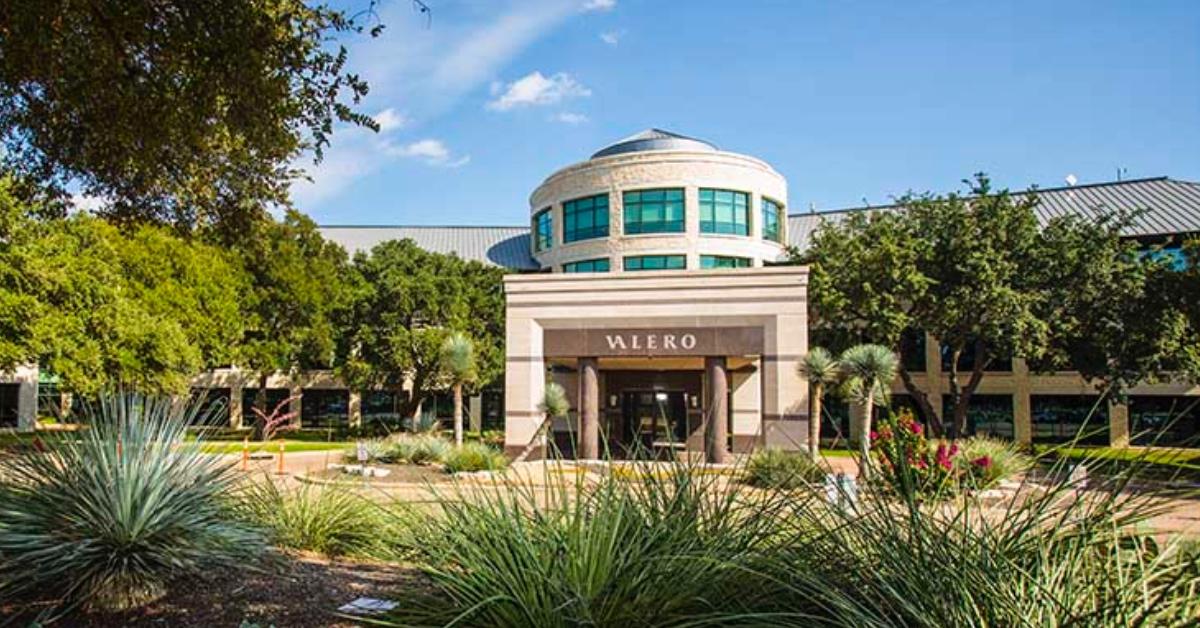Who Owns Valero? Leading Renewable Fuels Producer in North America
Founded in 1980, Valero Energy is the largest global independent petroleum refiner and one of the leading renewable fuels producers in North America.
Jan. 27 2023, Updated 10:49 a.m. ET

Founded in 1980, Valero Energy is the largest global independent petroleum refiner and one of the leading renewable fuels producers in North America. The company is a corporate successor of Lo-Vaca Gathering Company — a natural gas pipeline subsidiary of Houston-based Coastal Corporation. So, who owns Valero?
Today, Valero serves as a supplier fuel to roughly 7,000 independently owned fuel outlets located in various parts of the U.S. as well as in Canada, Ireland, the U.K., and Mexico. Keep reading for more details on Valero's owners and how the gas station rose in rank.
Who owns Valero gas stations?
Valero has been a public company since 1997, which means it's owned by its shareholders. The firms that currently hold the highest stakes in Valero include:
- The Vanguard Group, Inc. – 10.36 percent stake
- SSgA Funds Management, Inc. – 7.42 percent stake
- BlackRock Fund Advisors – 5.87 percent stake
- Fidelity Management & Research Co. – 3.72 percent stake
- Charles Schwab Investment Management – 2.15 percent stake
Valero's history and details on its uprising.
Since its inception in 1980, Valero has expanded at a rapid rate. Four years after its founding, the company commissioned its first full-scale refinery. From 1997–1998, the company merged with its natural gas-related service business with PG&E Corporation and spun-off its refining assets into a new public corporation, Valero Energy Corporation.
Then, in 2000, Valero Energy purchased Exxon’s Benicia Refinery in Northern California to enter the West Coast refining market. This provided the company with much-needed geographic diversity. The transaction also marked Valero's entry into the retail market because it included nearly 350 gasoline stations. However, what really catapulted the company into retailing ranks was its acquisition of San Antonio-based Ultramar Diamond Shamrock in 2001.
The deal also included Ultramar’s nearly 5,000 retail gasoline stations operating under names like Diamond Shamrock, Ultramar, and Beacon. Through this acquisition, Valero increased its revenues considerably. The company reached yet another milestone in 2005 after it became North America’s largest and most geographically diverse refiner with the acquisition of Premcor Inc. in an $8 billion transaction.
In 2011, the company expanded its geographical footprint by purchasing Pembroke Refinery in Wales, which marked its entry into Western Europe. Valero spun off its retail business as an independent public company, CST Brands Inc, which became the second-largest publicly traded fuel and convenience merchandise retailer in North America.
Currently, the company has 15 refineries in the U.S., Canada, and the U.K. with a throughput capacity of 3.2 million barrels per day. This makes it the largest global independent refiner. It's also the largest renewable fuels producer in the U.S. with Diamond Green Diesel producing 275 million gallons of renewable diesel annually.
Valero Energy encountered a few hurdles during the COVID-19 pandemic.
Valero’s 2020 results revealed that the company's revenues had declined by 40 percent YoY in 2020. Its net losses for that year were $1.1 billion, which resulted in an EPS of -$3.5. This was lower compared to an EPS of $5.84 in 2019. Due to the COVID-19 pandemic and the resulting lockdowns, the operating weakness was expected. All of the refiners had a difficult year as the demand dropped amid steady supply.
By 2021, however, Valero stock had risen by nearly 38 percent and has continued on an upward trend. In January 2023, Reuters reported that Valero's refineries had "operated at 97 percent capacity utilization rate in the fourth quarter, the highest since 2018." As of Jan. 27, 2023, Valero stock was trading at around $149 per share, the highest its reached since the company went public.

